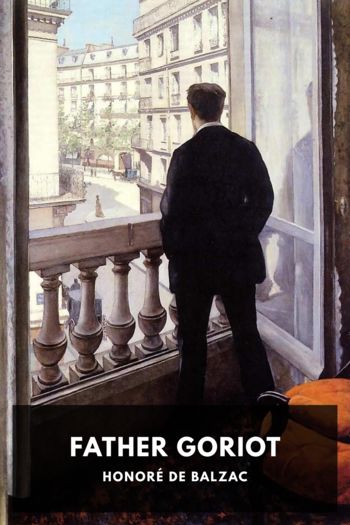Father Goriot by Honoré de Balzac (books to read for beginners txt) 📕

Description
Father Goriot, today considered one of Balzac’s most important works, is part of his novel sequence The Human Comedy. It’s the first of Balzac’s novels to feature recurring characters, a technique that he famously developed in his subsequent novels.
Set in Paris during the Bourbon Restoration of the early 1800s, Father Goriot follows Eugène de Rastignac, a student born to noble roots but little means, as he tries to climb the social ladder in Paris. The impoverished Goriot is staying at the same boardinghouse as Rastignac—and Rastignac sees opportunity in Goriot’s richly-married and elegant daughters.
The novel has been widely praised for its realist portrayal of Parisian life of various social classes, and its deep influence on French literature is still felt today. While it had chapter breaks when it was initially serialized, Balzac removed them when compiling his definitive edition of The Human Comedy, a change that is preserved in this edition.
Read free book «Father Goriot by Honoré de Balzac (books to read for beginners txt) 📕» - read online or download for free at americanlibrarybooks.com
- Author: Honoré de Balzac
Read book online «Father Goriot by Honoré de Balzac (books to read for beginners txt) 📕». Author - Honoré de Balzac
“What must I do?” said Rastignac, eagerly interrupting Vautrin’s speech.
“Next to nothing,” returned the other, with a slight involuntary movement, the suppressed exultation of the angler when he feels a bite at the end of his line. “Follow me carefully! The heart of a girl whose life is wretched and unhappy is a sponge that will thirstily absorb love; a dry sponge that swells at the first drop of sentiment. If you pay court to a young girl whose existence is a compound of loneliness, despair, and poverty, and who has no suspicion that she will come into a fortune, good Lord! it is quint and quatorze at piquet; it is knowing the numbers of the lottery beforehand; it is speculating in the funds when you have news from a sure source; it is building up a marriage on an indestructible foundation. The girl may come in for millions, and she will fling them, as if they were so many pebbles, at your feet. ‘Take it, my beloved! Take it, Alfred, Adolphe, Eugène!’ or whoever it was that showed his sense by sacrificing himself for her. And as for sacrificing himself, this is how I understand it. You sell a coat that is getting shabby, so that you can take her to the Cadran Bleu, treat her to mushrooms on toast, and then go to the Ambigu-Comique in the evening; you pawn your watch to buy her a shawl. I need not remind you of the fiddle-faddle sentimentality that goes down so well with all women; you spill a few drops of water on your stationery, for instance; those are the tears you shed while far away from her. You look to me as if you were perfectly acquainted with the argot of the heart. Paris, you see, is like a forest in the New World, where you have to deal with a score of varieties of savages—Illinois and Hurons, who live on the proceed of their social hunting. You are a hunter of millions; you set your snares; you use lures and nets; there are many ways of hunting. Some hunt heiresses, others a legacy; some fish for souls, yet others sell their clients, bound hand and foot. Everyone who comes back from the chase with his game-bag well filled meets with a warm welcome in good society. In justice to this hospitable part of the world, it must be said that you have to do with the most easy and good-natured of great cities. If the proud aristocracies of the rest of Europe refuse admittance among their ranks to a disreputable millionaire, Paris stretches out a hand to him, goes to his banquets, eats his dinners, and hobnobs with his infamy.”
“But where is such a girl to be found?” asked Eugène.
“Under your eyes; she is yours already.”
“Mlle. Victorine?”
“Precisely.”
“And what was that you said?”
“She is in love with you already, your little Baronne de Rastignac!”
“She has not a penny,” Eugène continued, much mystified.
“Ah! now we are coming to it! Just another word or two, and it will all be clear enough. Her father, Taillefer, is an old scoundrel; it is said that he murdered one of his friends at the time of the Revolution. He is one of your comedians that sets up to have opinions of his own. He is a banker—senior partner in the house of Frédéric Taillefer and Company. He has one son, and means to leave all he has to the boy, to the prejudice of Victorine. For my part, I don’t like to see injustice of this sort. I am like Don Quixote, I have a fancy for defending the weak against the strong. If it should please God to take that youth away from him, Taillefer would have only his daughter left; he would want to leave his money to





Comments (0)